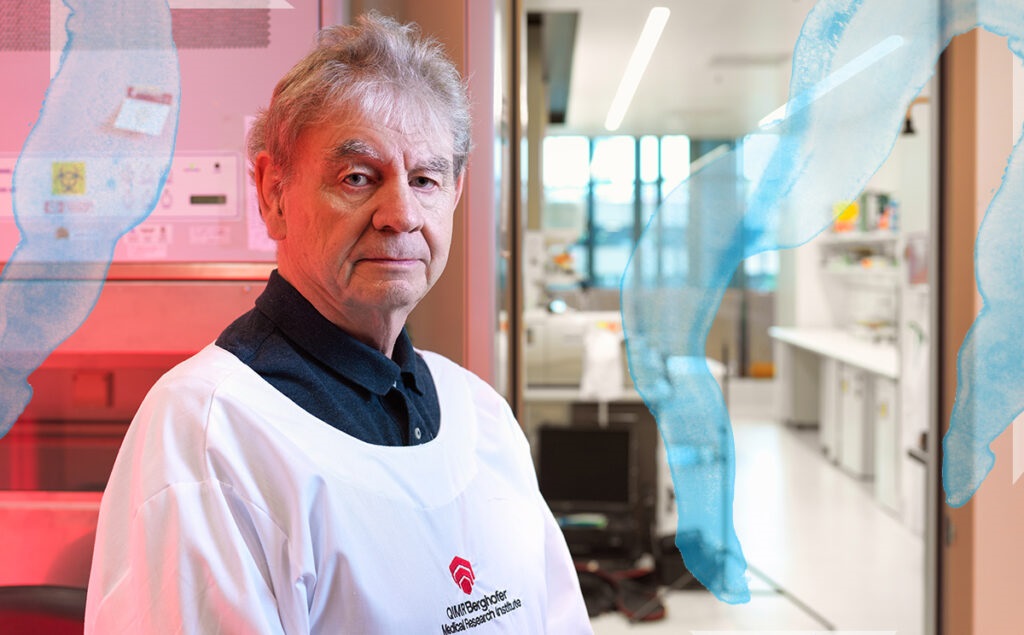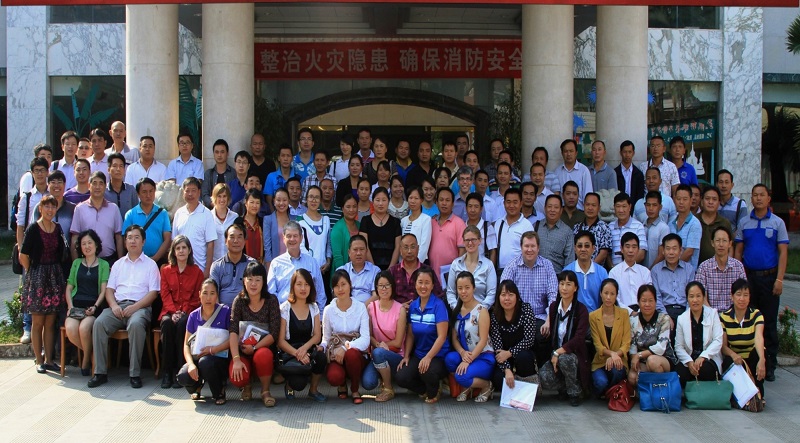Professor Don McManus is senior scientist at QIMR Berghofer and an internationally acclaimed parasitologist. This year, he was awarded the 2020 NHMRC Peter Doherty Investigator Grant Award (Leadership).
When I was notified that I had been awarded the 2020 NHMRC Peter Doherty Investigator Grant Award (Leadership) I was surprised, grateful and proud. It is a highlight of my professional career. It gave me some good news I could share with my research group and with the wider QIMR Berghofer community, at a time when a lift in spirits was greatly needed. I also stopped to reflect on my scientific career, and raise a toast to all those who have inspired and supported me over more than 50 years.

My work has evolved over the years, but I have always worked on diseases caused by parasitic helminths. My current focus is a multidisciplinary approach to controlling intestinal nematode worm diseases and schistosomiasis, a blood fluke infection that is second only to malaria in impacting the health and economies of some of the world’s poorest. Some 700 million people live in countries where the disease is endemic, and more than two billion people are affected negatively by intestinal worms. Drugs are available but my research focus is on developing vaccines and encouraging good health practices to support drug treatment. A strategy applying all tools in our arsenal of control methods is most likely to bring long-term success in eliminating disease caused by parasitic worms.
My research is based on outstanding capabilities and collaborations both in Australia and internationally, but ultimately it is focused on practical delivery. Cheap and accurate diagnostic tools, improved surveillance techniques and effective public health measures will make a real difference to the lives of people who co-exist with these parasites. As well as causing disease, the debilitating effects of worm infections are devastating for children – they fail to thrive, miss school and ultimately become trapped in the burden of poverty. Australia has a long tradition and legacy in supporting infectious disease research to support the health of our First Nations people and our neighbours. I am humbled that my research has helped to shape policy and practice with wide-scale application for informing governments on intervention options targeting elimination.
This research will benefit the poorest and most disenfranchised people and children. As we are confronted daily with depressing COVID-19 statistics, we see the same pattern that we have seen throughout history – those living in poverty, with poor infrastructure and resources are the most impacted.
I didn’t consciously choose to end up in this research area. When I was a rugby-mad 16-year-old back in Wales, I was not planning a career as a research scientist. But I was always fascinated by parasites and I have been fortunate to be offered opportunities and mentored by some great parasitologists. They challenged and inspired me. I have travelled widely, and seeing first-hand how these diseases impact people in China, Vietnam, the Philippines, Thailand, Laos, Cambodia, Myanmar, Africa and our First Nations communities is a motivator to continue to work to find better intervention options.
To have a successful research career, you need good mentors, resilience and persistence. Scientific research has always been competitive and there are many disappointments along the way. For young researchers starting out, my advice is to appreciate that research is highly rewarding and fulfilling but at times disheartening. It is important to have steadfast support from family, friends and colleagues. The current research climate is far more competitive than 50 years ago, but it is a great time to be a scientist and I look forward each day to heading into my lab to work with my group. I love what I do, and my advice to early career researchers is that if you have that passion, then you will find a way to do it. Good luck!
